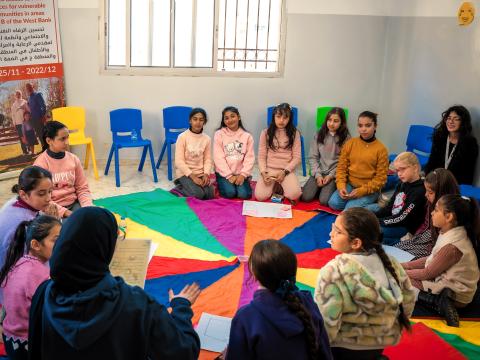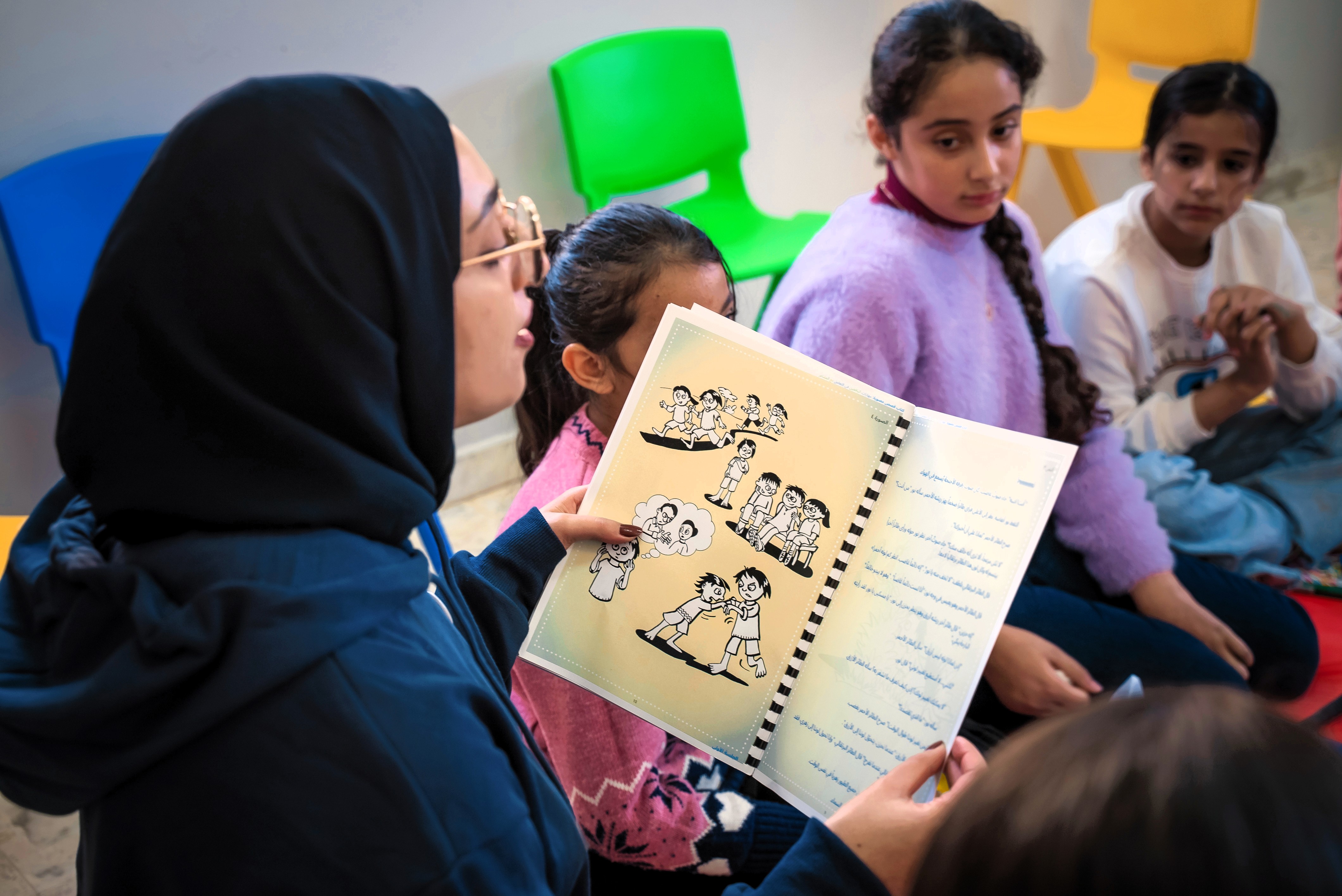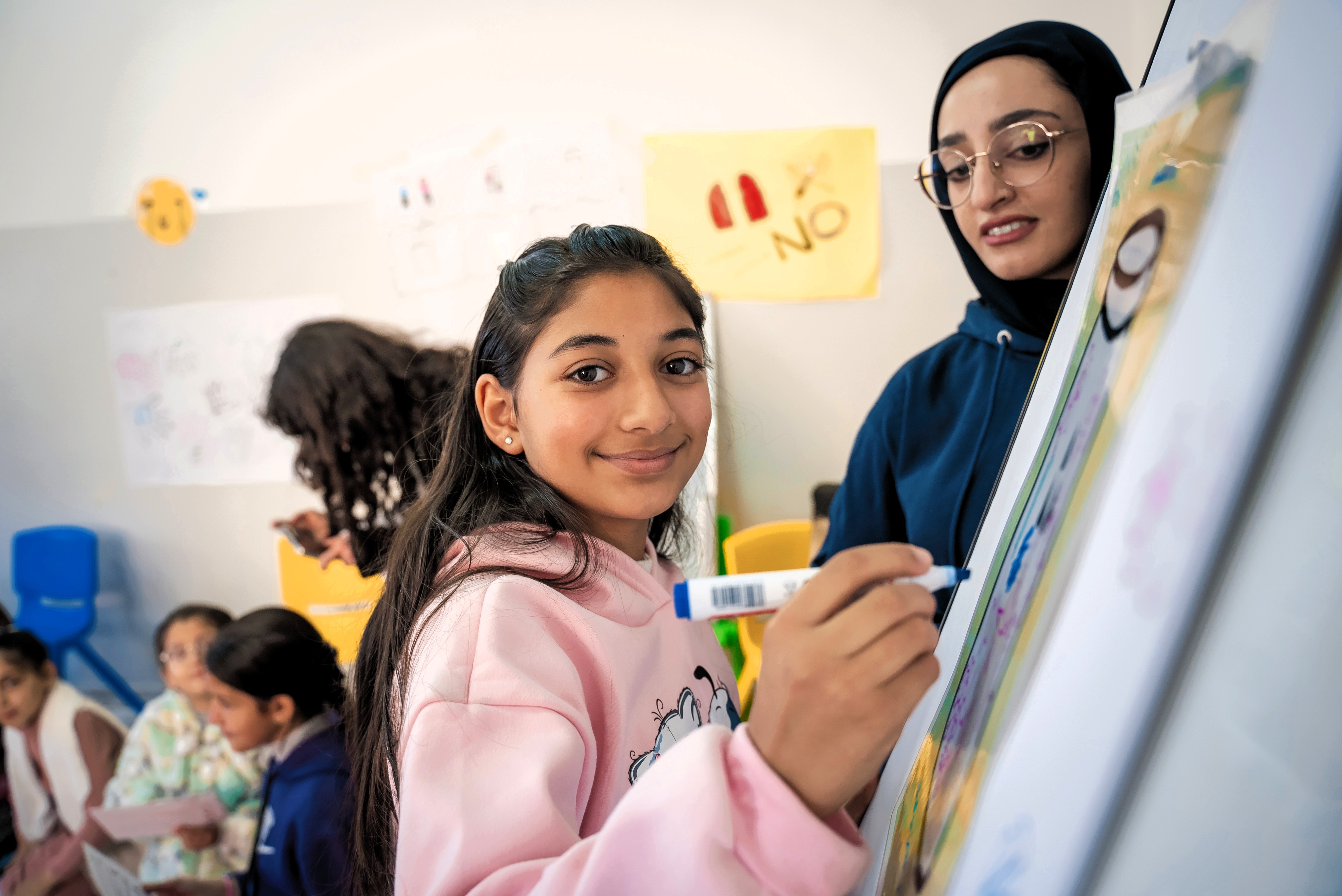Empowering Adolescents Through Mental Health and Psychosocial Support in the West Bank

In the challenging environment of the West Bank, children and adolescents face ongoing psychological pressure, with many experiencing stress, anxiety and severe trauma that can have long-term negative consequences—especially teenagers. To address these issues, the "Enhanced Access to Mental Health Psychosocial Support (MHPSS) Services for Vulnerable Communities" project, funded by the German Federal Ministry for Economic Cooperation and Development (BMZ), has introduced the Early Adolescent Skills for Emotions (EASE) programme. This initiative, implemented in partnership with Juzoor for Health & Social Development, aims to enhance mental health and psychosocial support for adolescents and their caregivers to foster a healthier, more resilient future for the community.
Developed by the World Health Organization (WHO), the EASE programme is a psychological intervention designed to support young people aged 10-15 who struggle with internalizing problems such as depression, anxiety, and stress. The programme consists of seven group sessions for adolescents and three additional group sessions for their caregivers, focusing on four key strategies: identifying feelings, stress management, behavioural activation, and problem-solving.
Bisan, one of the facilitators, described the training: "The sessions had such a warm and welcoming atmosphere. We talked a lot about emotions—how to understand them and handle them in a healthy way. The kids really opened up, sharing their thoughts and feelings through fun activities. And for the mothers, it was a great opportunity to learn how to better support their children and improve communication at home."
 Iman, another facilitator, highlighted the parents' mixed emotions at the start of the programme: "At first, the parents had so many emotions—some were really excited, others were hopeful but also a little nervous. They wanted their children to learn how to handle their feelings better, but they also wondered, 'Will this really help? Will my child respond to it?' More than anything, they just wanted to see a real change—something that would help their kids express their emotions in a way that makes home and school life easier for everyone."
Iman, another facilitator, highlighted the parents' mixed emotions at the start of the programme: "At first, the parents had so many emotions—some were really excited, others were hopeful but also a little nervous. They wanted their children to learn how to handle their feelings better, but they also wondered, 'Will this really help? Will my child respond to it?' More than anything, they just wanted to see a real change—something that would help their kids express their emotions in a way that makes home and school life easier for everyone."
The EASE sessions have had a profound impact on participants. Jana, a 14-year-old, shared her experience with breathing exercises: "Whenever my mom gets stressed, especially when helping my little brother with homework, I remind her to breathe slowly with me. It really helps!" Muhamad, a 12-year-old, said: "Now, when I feel overwhelmed, I use colours to let my mom know how I'm feeling. I draw or show her a colour that matches my emotions—it’s easier than trying to explain with words."
The programme also involves caregivers, equipping them with tools to better support their children. Zainab, one of the caregivers, expressed her gratitude: "This programme changed so much for us. The kids became more comfortable talking about their feelings, and as mothers, we learned new ways to support them. The sessions were really interactive and hands-on, which made everything easier to understand and apply at home."
Early results indicate significant improvements:
- A 66% reduction in psychological distress among targeted adolescents post-intervention, and a 56% reduction among caregivers.
- 92% of those exhibiting signs of distress have shown improved functioning.
- A 69% reduction in psychological morbidity among children in target areas post-intervention.
- A 65% reduction in somatic symptoms among children in target areas post-intervention.
 As the project continues, the EASE programme will be implemented in 34 villages in the West Bank with the objective to support more than 1,000 adolescents and over 1,000 caregivers with the tools to manage emotions and support each other.
As the project continues, the EASE programme will be implemented in 34 villages in the West Bank with the objective to support more than 1,000 adolescents and over 1,000 caregivers with the tools to manage emotions and support each other.
Beyond this project, since October 2023, World Vision has provided mental health and psychosocial support to 52,000 people while 340 teachers, youth club facilitators and health workers were trained to provide mental health and psychosocial support services and referrals.